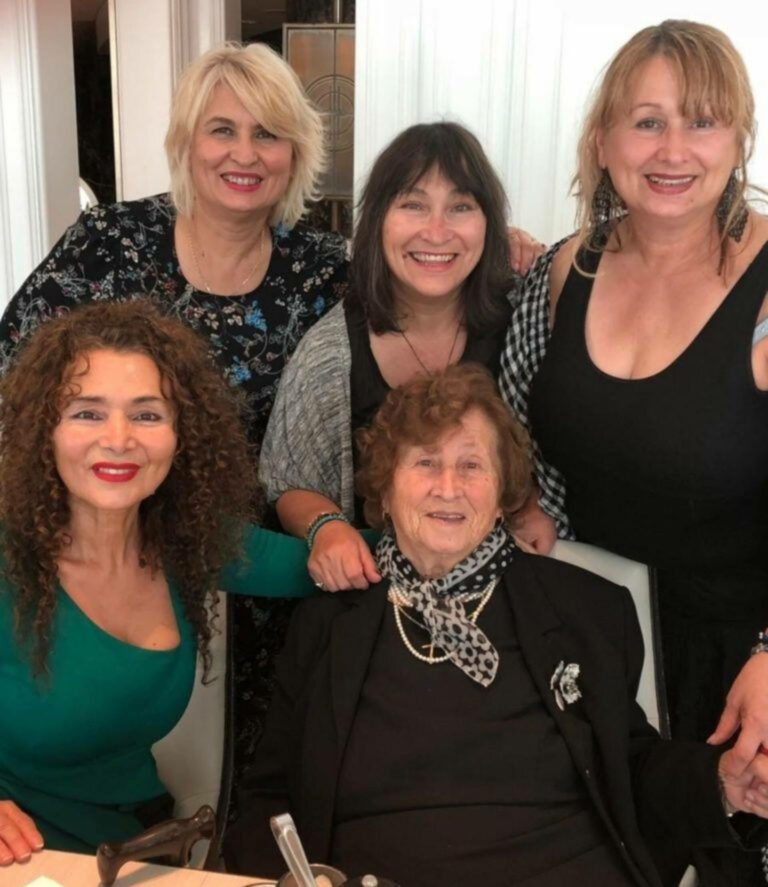One of the oldest Greek women in Australia, if not the oldest, embarked on her eternal journey on Tuesday at the age of 104.
Efstathia Spyropoulou, whom we have featured in the pages of Neos Kosmos often has lived at the same address for thirty years and read our newspaper three times a week.
And what a life she lived!
Born on June 10, 1920, during the time of the Asia Minor Catastrophe, this woman was a living history, with experiences and stories beyond our imagination.
Naturally, on her 100th birthday, she received birthday cards from the Queen of England, Elizabeth, and the then Prime Minister of Australia, Scott Morrison.
How can one fit one hundred years into a single page?

She was born and lived in Greece during a difficult era, one dominated by poverty and ravaged by wars. Efstathia used to say that when she was young, people had nothing to eat. Her parents, by cultivating the land, always had food on the table and always saved a plate for a passerby in need. Even recently, she would tell her children not to waste food and to be grateful for having it.
-
Related ArticleA poem honouring a 101-year-old mother

After World War II ended, she married and started her own family, with her firstborn son Pavlos being born the following year.
Then, her husband was called to fight in the civil war, which she used to say was the worst of all wars. She raised her child alone for the next four years until the father returned from the war. With the scars of the war still fresh, and the deep economic crisis, life was hard. The land, left uncultivated for so long, struggled to bear fruit. The parents worked hard to survive, as did everyone at that time.

The couple had six more children, all of whom Efstathia gave birth to at home without a doctor, with the help of a woman who acted as the village midwife.
Without water and electricity, they had to fill canteens at the village square to have drinking water.
Stavroula is the sixth child in the family and has only fond memories of her childhood, as she was too young to understand the difficulties.
The older siblings worked in the fields, but she was shielded from the hardships.
She nostalgically remembers the fireplace where everyone gathered around the fire and their mother told them stories. She says, among other things:
“We took the path of immigration in September 1964, heading to the ‘lucky country,’ Australia.
“One month on the ship ‘Patris,’ and we found ourselves from one end of the earth to the other. Initially, acclimatisation was difficult.

“The sounds of the farm animals we had in the village were replaced by the sirens of the police, fire trucks, and ambulances. The cultural shock was significant, but we soon adapted. Australia became our new home.
“We even bought a house in Fawkner and thus put down roots here. We have the best family memories from that house,” she told Neos Kosmos.
“My mother called our new homeland ‘Paradise’ and couldn’t understand how some people complained and felt tired, given that they didn’t have to chop wood to keep warm and cook.
“With washing machines, electricity, and water supply, everything became easy. My parents were always grateful for the opportunities this place offered us, opportunities that we wouldn’t have had in Greece. The family grew, and the children had their own children and grandchildren, who now live all over Melbourne.
“That house in Fawkner, along with our mother, was the connecting link for all of us and brought the whole family together.

We lost our father 18 years ago, and we honoured his wish to be buried in Greece, in his beloved village that he never forgot. My mother and the seven children went to Greece to bid him farewell at his final resting place.
To this day, she calls Australia the ‘lucky country’ and feels proud as a Greek of Australia. For her, Fawkner remains the best suburb of Australia, and Australia the best country in the world. However, Greece is always in our hearts and in every fiber of our being.”










